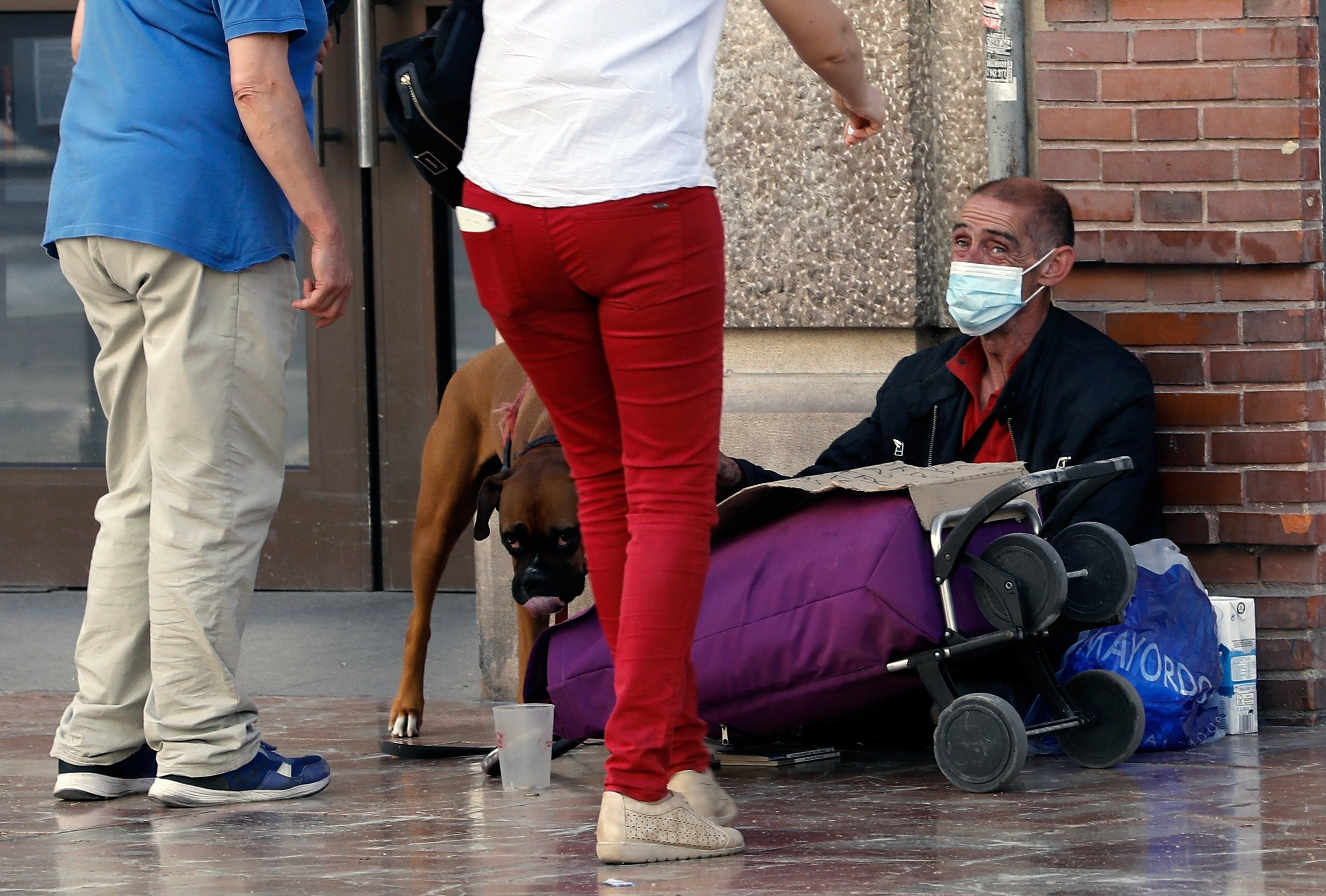Spain's deputy PM for social affairs, Podemos leader Pablo Iglesias, has announced the launch of one of his party's main objectives this Friday: the introduction of a Minimum Income scheme, a new benefit that will provide recipient individuals with a monthly payment of up to 460 euros, and families with up to 1,015 euros, and which can be requested from 15th June. Given this fact, the most immediate question is: who will be able to benefit from it?
Iglesias himself explained today that access to this new benefit will depend "exclusively on the level of income and wealth of the person" who requests it. Income level must be lower than the annual guaranteed income: this means that a family unit with two adults and two children, for example, could receive the benefit if its total income is below 10,500 euros for the year. And it will be calculated in such a way that it will top up any income already received by the family to the guaranteed income level.
At the same time, said Iglesias, the benefit will be able to be requested if during the current year "income obtained would be below the guaranteed income in annual terms". Among its implications, this provision will be a way of assisting people who have been severely affected by the coronavirus pandemic.
Technically, the Minimum Income assistance is calculated as "the difference between the income of the person (or family unit) and the guaranteed income". Thus the calculation of the amount anyone could receive is a two-step process: first, it depends on the guaranteed income, which as a monthly amount, is set at 462 euros for an adult living alone, and if the person does not live on their own but is part of a family or cohabitation unit, the guaranteed amount will increase by 139 euros per month for each additional person, whether minor or adult, up to a maximum of 1,015 euros. In the event that the family is single-parent, there will be a supplement of 100 euros per month.
The second step in the calculation is to work out the difference between a family's current income and the guaranteed level. Thus, a family of three people living together would be entitled to a guaranteed monthly income of 462 + 139 + 139 = 740 euros. If one of them had a part time job that paid 300 euros a month, and another had income of 100 euros, they would be entitled to an additional 340 euros a month from the new benefit. 740 - 300 - 100 = 340 euros.
The new benefit will be paid monthly, but when calculated as an annual income, it will make possible a guaranteed income of 10,070 euros per year on average across the Spanish state. It will benefit a total of 2.3 million people, according to Spanish government estimates.
Compatible with other income
As Iglesias emphasised, one of the key points of the new Minimum Income is that "it is compatible with other incomes including work, which means it can be extended to households in which people work for very low incomes" and in this way, he said "they can avoid the poverty trap". This is a response to the frequent criticism made of paying such benefits, that they are a disincentive to working, since a person is forced to choose between working and receiving the benefit.
The compatibility of the new benefit with work, says Iglesias, will encourage people to look for a job, as it will add to their income, rather than reduce it. In addition, the new scheme is compatible with part-time work.
However, the new scheme should not be confused with the idea of a Universal Basic Income, a concept which involves basic income payments being made by the state to everyone, regardless of the other incomes they receive. Spain's new benefit is means-tested, so only people on or close to the poverty line will receive it.
How do you apply?
Iglesias also explained how to apply for the benefit, although he also stated that around 100,000 households will receive it automatically without having to carry out any formalities. Others who wish to apply will be able to do so via internet by presenting official documents giving the ages of people in the family unit and their residence permit, and the ministry will review the applicants' income.
According to the Podemos leader, this benefit is envisaged to reach more than one million people living in extreme poverty, and will thus reduce extreme poverty by 80%. In the case of single-parent households (in which the parent is female in 90% of cases), the reduction in extreme poverty is expected to be 90%.

